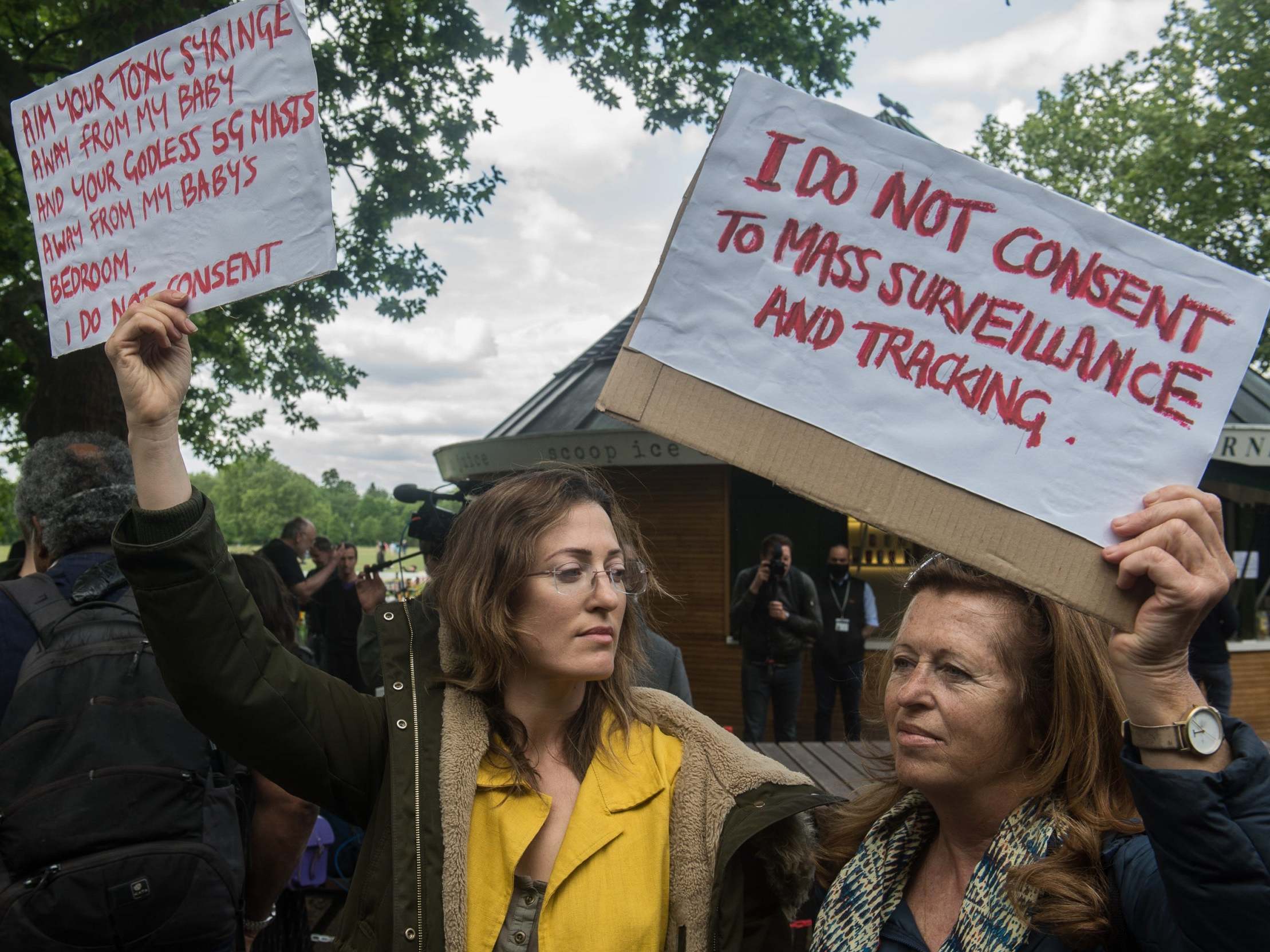Coronavirus brings anti-vaxxers into the firing line for social media firms
Analysis: Pressure is mounting on tech giants to undertake a crackdown on anti-vaxxers similar to that of Isis and white supremacists, Lizzie Dearden writes

In 2014, it was possible to follow Isis fighters on Facebook and Twitter as the terrorist group waged a bloody campaign to set up its caliphate in Iraq and Syria.
Foreign fighters and “jihadi brides” were able to post photos from Raqqa and Mosul, share propaganda, issue advice on reaching the “Islamic State” and call for attacks around the world.
Amid mounting pressure from international governments, mainstream social media platforms launched a concerted effort to take down their content and ban users sharing it, pushing Isis into increasingly niche corners of the internet.
Four years later, far-right extremists came into the line of fire following the rise of white supremacist attacks around the world.
Like the jihadis before them, neo-Nazis, racists and anti-Muslim activists found themselves scrambling for new online homes.
Now, the coronavirus pandemic has made anti-vaxxers the latest group selected for online crackdowns.
While anti-vaccine movements have existed for as long as the internet has, Covid-19 has sparked a rapid growth in audience for activists and the sellers of fake “alternative” cures.
Their activity does not easily mesh with existing terms and conditions governing hateful posts and graphic material, which have been wielded against other extremists.
The anti-vax movement is a broad church, encompassing the left-wing, right-wing and conspiracy theorists of all types.
Some figures appear to be well-meaning sceptics, while others have pulled vaccines into wider conspiracies involving antisemitism, the white genocide theory and the “new world order”.
Such diversity makes the content hard to police, and rather than outright bans, Facebook and other firms have so far imposed curbs on how anti-vax content can be searched for, shared and monetised.
But as the coronavirus pandemic continues to rage, campaigners are pushing for stronger action.

As with all take-down operations, there is a risk that such action could be used by anti-vaxxers to publicise themselves.
Some would see social media crackdowns as proof of supposed conspiracies to silence them by governments, the United Nations, the “new world order” or Big Pharma.
But for campaigners at the Centre for Countering Digital Hate, which released a report on Tuesday showing a rise in the proportion of British people who would now refuse a coronavirus vaccine, it is a risk worth taking.
Chief executive Imran Ahmed told The Independent that by turning people against public health advice and potential immunisation, anti-vaxxers could cause tens of thousands of deaths.
He claimed that anti-vax theories were currently more dangerous than online terrorist information, adding: “It’s an ideological dirty bomb that will spread toxic misinformation throughout a population and has the potential to cause tens of thousands to die.”
Technology giants have been historically resistant to infringing their users’ freedom of speech, and tried to minimise their responsibility as “platforms” rather than publishers.
But public perception shifts, and online freedom for anti-vaxxers may one day appear as ludicrous as it does for Isis fighters now.
As the coronavirus pandemic continues to kill, history will most likely judge whatever decision the social media giants make.
Join our commenting forum
Join thought-provoking conversations, follow other Independent readers and see their replies
Comments